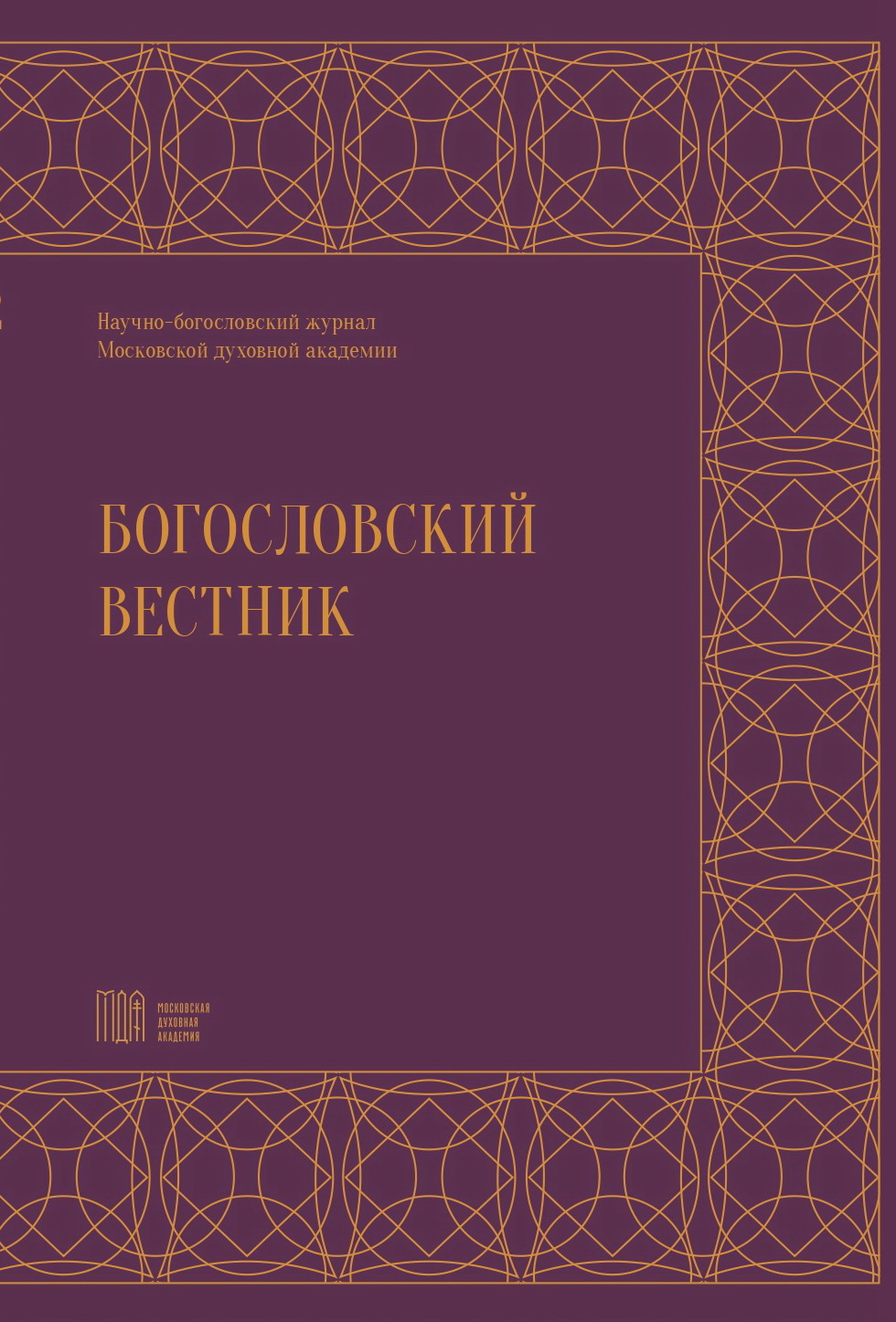Theological Aspects of Creation in the Texts of the Liturgies of the Coptic Orthodox Church
DOI:
https://doi.org/10.31802/GB.2023.48.1.011Keywords:
Coptic Orthodox Church, the Liturgy of St. Mark, the Liturgy of St. Basil the Great, the Liturgy of St. Gregory the Theologian, theology, creation, Christian anthropologyAbstract
The purpose of this article is to conduct a theological analysis of the texts of the Liturgies of the Coptic Church, based on the well-known manuscripts and rites of the Liturgies of St. Peter. St. Basil the Great, St. Mark and St. Gregory the Theologian. The purpose of the Coptic Church was to explain the teaching to its children in its simple content that the relationship of man with God in prayers and church sacraments is the relationship between the «Source», that is, God, and his «image and likeness», that is, man. Thus, the Christian faith has become in its essence — through this pedagogy — a school of prayer and communication in the divine life through the incarnation of the Word. The Liturgy provided the doctrinal foundations for explaining the truth, as it clarified the indissoluble connection between creation, incarnation, redemption and salvation, conveyed to us the spirit of the entire new Testament and presented the reasons for the incarnation of the Word and everything He did during His incarnation. Thus, the rites and Liturgies dictated an approach to the explanation of the doctrine, which emphasized that man is the image of God and a creation for the sake of divine communion. Thus, the analysis of the theology of creation is the initial stage in the analysis of the theology of the Coptic Liturgy. The article also uses a comparative analysis of translations in Russian, Arabic and Coptic languages, which will reveal the terminological features of a particular tradition, and also contributes to the further development of theological dialogue between Churches.
Downloads
References
Athanasius Alexandrinus. Contra gentes // PG. Т. 25. Col. 4–96. Athanasius Alexandrinus. De incarnatione Verbi // PG. Т. 25. Col. 95–197. Basilius Caesariensis. Homilia I. In principio // PG. T. 29. Col. 4A–28B. Cyrillus Alexandrinus.Commentarii in Joannem // PG. T. 73. Col. 9–1156. Gregorius Nyssenus. De opificio hominis // PG. Т. 44. Сol. 125–256.
Gregorius Nyssenus. Oratio catechetica // PG. Т. 45. Сol. 11–107. Gregorius Palamas. Quaestio ad illum // PG. T. 150. Col. 1102–1103. Irenaeus. Contra haereses // PG. T. 7. Col. 433–1225.
Joannes Damascenus. De haeresibus // PG. T. 94. Col. 578–789.
Origenes. De principiis // PG. T. 11. Col. 218–225.
Origenes. In Genesim // PG. T. 12. Col. 91–281.
Афанасий Великий, свт. Слово на язычников // Творения иже во святых отца нашего Афанасия Великого архиепископа Александрийского. Ч. 1. Сергиев Посад: Свято-Троицкая Сергиева Лавра собственная тип., 1902. С. 125–190.
Афанасий Великий, свт. Слово о воплощении Бога-Слова, и о пришествии Его к нам во плоти // Творения иже во святых отца нашего Афанасия Великого архиепископа Александрийского. Ч. 1. Сергиев Посад: Свято-Троицкая Сергиева Лавра собственная тип., 1902. C. 191–263.
Василий Великий, свт. Беседа 1. На слова Бытия: «Сотворим человека по образу Нашему и по подобию Нашему..» // ЖМП. 1972. № 1. С. 31–58.
Григорий Нисский, свт. Об устроении человека // Творения святого Григория Нисского. Ч. 1. Москва: Тип. В. Готье, 1861. С. 76–222.
Григорий Нисский, свт. Большое огласительное слово // Творения святого Григория Нисского. Ч. 4. Москва: Тип. В. Готье, 1862. С. 8–45.
Григорий Палама, свт. Беседы (омилии). Москва: Паломник, 1993.
Иоанн Дамаскин, прп. Точное изложение православной веры. Москва: Отчий дом, 2011.
Ириней Лионский, св. Против ересей / пер. прот. П. Преображенского. Санкт-Петербург: Изд. Олега Абышко, 2008.
Кирилл Александрийский, свт. Толкование на Евангелие от Иоанна // Творения святителя Кирилла, архиепископа Александрийского. Кн. 2. Москва: Паломник, 2001. С. 431–784.
،ﺮﺼﻣ ،ﺲﻤﺷ ﻦﻴﻋ ﺔﻌﺒﻄﻣ (ﺕﺎﺳﺍﺪﻘﻟﺍ ﺔﺛﻼﺜﻟﺍ ﺏﺎﺘﻛ)،ﺱﺪﻘﻤﻟﺍ ﻲﺟﻻﻮﺨﻟﺍ ﺏﺎﺘﻛ ،ﻱﺩﻮﻌﺴﻤﻟﺍ ﺢﻴﺴﻤﻟﺍ ﺪﺒﻋ ﺺﻤﻘﻟﺍ 1902 ﻲﻟﻭﻻﺍ ﺔﻌﺒﻄﻟﺍ [Священный служебник — книга трёх литургий: св. Василия, св. Григория и св. Кирилла / испр. и ред. Абд эль-Мэсих Салиб. Каир: Айн Шамс, 1902].
ﺱﻮﻴﻧﺎﻔﻴﺑﺃ ﺎﺒﻧﻷﺍ ،ﺔﻴﺑﺮﻌﻟﺍ ﺔﻤﺟﺮﺘﻟﺍ ﻊﻣ ﻲﻧﺎﻧﻮﻴﻟﺍ ﺺﻨﻟﺍ ،ﻱﺭﻮﻐﻳﺮﻐﻟﺍ ﺱﺍﺪﻘﻟ. [Епифаний, еп. Григорианская литургия / греческий текст с переводом на арабском языке. Каир: Монастырь св. Макария, 2015].
Порфирий (Успенский), еп. Вероучение, богослужение, чиноположение и правило церковного благочиния египетских христиан (коптов). Санкт-Петербург: Тип. Имп. Акад. наук, 1856.
Фокин А. Р. Душа // ПЭ. 2007. Т. 16. С. 447–456.
Литтл Б. Бог и бессмысленное зло. Теодицея сотворенного мироустройства. Симферополь: Диайпи, 2008.
Swinburne R. Providence and the Problem of Evil. Oxford: Oxford University Press, 2011.
Downloads
Published
How to Cite
Issue
Section
Categories
License

This work is licensed under a Creative Commons Attribution-ShareAlike 4.0 International License.








